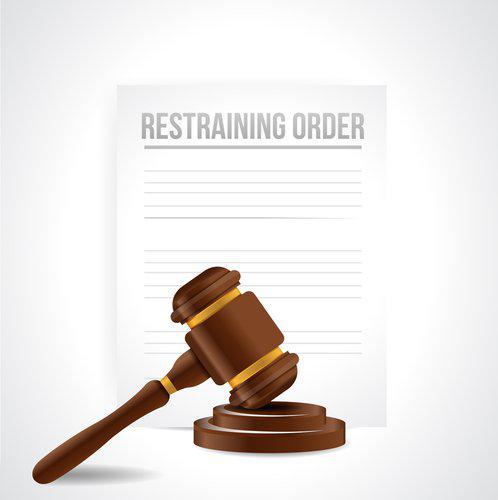Recent Blog Posts
Child Custody Modification
 When the court initially determines your child custody order, it does so with what it feels are your child's best interests in mind as specified in the Illinois Marriage and Dissolution of Marriage Act. These interests include educational resources, a stable household with adequate space for the child to live, his or her relationship with each family member, and any personal needs your child has. However, nothing in life is set in stone. As your child matures, his or her needs will change. Sometimes, this results in a child custody arrangement that is no longer appropriate for him or her and could potentially harm his or her relationship with each parent.
When the court initially determines your child custody order, it does so with what it feels are your child's best interests in mind as specified in the Illinois Marriage and Dissolution of Marriage Act. These interests include educational resources, a stable household with adequate space for the child to live, his or her relationship with each family member, and any personal needs your child has. However, nothing in life is set in stone. As your child matures, his or her needs will change. Sometimes, this results in a child custody arrangement that is no longer appropriate for him or her and could potentially harm his or her relationship with each parent.
Sometimes, a change in a custody order is because of significantly changed circumstances, like a parent losing his or her home and having to move into a small apartment. Other times, it is because of an adolescent's desire to live with the other parent or see him or her more frequently. In any case, there are certain protocols that every family with a custody arrangement in place must take to change the custody schedule.
Order of Protection: Getting Your Abusive Spouse Out of Your Home
 You should always be able to feel safe in your home. Your home is your sanctuary; the place where you can go to escape from the trials of the world. But if you are living with an abusive partner, your home can be dangerous for you and your children. If you are in immediate danger of any type of domestic violence or truly believe you could be, get out of the home now. You can come back for your things later and determine the ownership of the home in divorce court, but when the threat of abuse is imminent, you need to put your safety first. Do this by getting out of the home and seeking an Order of Protection against your spouse.
You should always be able to feel safe in your home. Your home is your sanctuary; the place where you can go to escape from the trials of the world. But if you are living with an abusive partner, your home can be dangerous for you and your children. If you are in immediate danger of any type of domestic violence or truly believe you could be, get out of the home now. You can come back for your things later and determine the ownership of the home in divorce court, but when the threat of abuse is imminent, you need to put your safety first. Do this by getting out of the home and seeking an Order of Protection against your spouse.
Two Ways to Eject an Abusive Spouse from the Home
If you need to stay in your marital home, you can have your spouse legally removed from the household. You cannot remove him or her from the house without legal intervention. There are two ways to accomplish this.
The first is to seek an Order of Protection against him or her. When you have an Order of Protection in place, your spouse is not permitted to contact you or come within a specified number of feet of you. An Order of Protection comes from the court, and the judge who signs the order must determine that your spouse's presence in the home is a threat to your safety or your child's to bar him or her from the house.
Recognizing the Signs of Domestic Violence
 Domestic violence can seem simple. When one spouse physically abuses his or her partner, kicking, punching, and berating him or her, that spouse is an abuser. But can you recognize the other signs of domestic violence? More importantly, would you be able to recognize them if you, yourself, were a victim of domestic violence and do you know what to do if you are a victim?
Domestic violence can seem simple. When one spouse physically abuses his or her partner, kicking, punching, and berating him or her, that spouse is an abuser. But can you recognize the other signs of domestic violence? More importantly, would you be able to recognize them if you, yourself, were a victim of domestic violence and do you know what to do if you are a victim?
Consider the most important signs of domestic violence to determine if you are familiar with them or you have seen them happening in your relationship. If you are a victim, get out of your home as soon as you can. Illinois has a network of domestic violence shelters where you can go to be safe from your abusive spouse. Once you are out of the home, your next step is to seek legal action to obtain an Order of Protection and/or file for divorce.
Determining Pet Custody During Divorce
 For thousands couples throughout the United States, pets are members of the family. For these couples, the pet's custody can be a prominent issue during their divorce.
For thousands couples throughout the United States, pets are members of the family. For these couples, the pet's custody can be a prominent issue during their divorce.
In Illinois, pets are considered to be personal property. This means that they are divided among divorcing couples in the same way that property such as cars, household decor, and recreational items are divided – according to their monetary value. In Illinois, each partner receives a portion of the couple's shared property according to his or her contribution to the marriage's shared property value and his or her economic needs following the divorce. This is known as equitable distribution and is outlined in the Illinois Marriage and Dissolution of Marriage Act. If one spouse owned the pet before the marriage began, the pet may be considered to be singly-held property and thus not subject to property division rules.
What Is an Uncontested Divorce?
 An uncontested divorce is a divorce wherein the spouses agree on all key proponents of their divorce settlement before they file to end their marriage. These proponents include:
An uncontested divorce is a divorce wherein the spouses agree on all key proponents of their divorce settlement before they file to end their marriage. These proponents include:
- Spousal maintenance;
- The division of their marital property; and
- All other disputes regarding the marriage.
The couple may determine their own child custody agreement, but this is subject to court intervention if the court deems it to not be in the child's best interest. The court has greater influence in determining an appropriate child support amount than it does over determining a child custody agreement.
If you and your spouse have an amicable relationship and have already worked out a mutually-satisfying divorce plan, you might be candidates for an uncontested divorce. By cutting out the lawyer meetings and hearings associated with a traditional, or contested, divorce, you can save yourselves considerable amounts of time and money.
Annulment: How to End an Invalid Marriage
 A marriage must meet certain requirements to be valid. These requirements, as well as the circumstances under which a marriage may be determined to be invalid, are outlined in the Illinois Marriage and Dissolution of Marriage Act. For example, if a couple married when one of the parties was under the influence of drugs or alcohol or otherwise unable to consent to the marriage, the marriage may not be considered to be valid. Another reason why a marriage might be deemed to be invalid is if one of the parties was already married to another individual when the wedding ceremony was performed or one of the parties somehow lied about his or her identity, causing the other partner to marry him or her under false pretenses. If a minor married without parental consent, that marriage, too, may be deemed to be invalid. When a couple's marriage is invalid, they may end it through a process known as annulment. Getting an annulment is not the same as getting a divorce. When a couple divorces, their legal, valid marriage is dismantled. When a couple gets an annulment, their marriage is wiped from the record as if it had never occurred.
A marriage must meet certain requirements to be valid. These requirements, as well as the circumstances under which a marriage may be determined to be invalid, are outlined in the Illinois Marriage and Dissolution of Marriage Act. For example, if a couple married when one of the parties was under the influence of drugs or alcohol or otherwise unable to consent to the marriage, the marriage may not be considered to be valid. Another reason why a marriage might be deemed to be invalid is if one of the parties was already married to another individual when the wedding ceremony was performed or one of the parties somehow lied about his or her identity, causing the other partner to marry him or her under false pretenses. If a minor married without parental consent, that marriage, too, may be deemed to be invalid. When a couple's marriage is invalid, they may end it through a process known as annulment. Getting an annulment is not the same as getting a divorce. When a couple divorces, their legal, valid marriage is dismantled. When a couple gets an annulment, their marriage is wiped from the record as if it had never occurred.
Fathers' Rights: Establishing Paternity

If you think you might have a biological child, you need to establish your paternity of that child in order to gain any rights regarding him or her. These rights include the right to seek custody or visitation with your child, the right to seek child support for his or her care, and your obligation to financially support him or her until he or she is an adult. When you establish paternity, you become the child's legal father. This and other laws related to paternity and parents' rights in Illinois are included in the Illinois Parentage Act of 1984.
In Illinois, an alleged father can establish his paternity by signing the child's birth certificate when the child is born. This is accompanied by a Voluntary Acknowledgment of Paternity form, which both parents need to date and sign. A man can also establish paternity through an Order of Paternity or an Administrative Paternity Order, both of which are ordered by the court.
How Can a New Relationship during Divorce Affect the Outcome?
Marrying or cohabitating with a new partner after your divorce is finalized changes your financial circumstances, which can lead to a change in your spousal maintenance or child custody arrangements. It may affect your relationship with your child, necessitating a change to your child custody agreement.
This does not mean you should not seek a new relationship after your divorce. What is important is that you understand how a new relationship can affect your divorce settlement before you enter one. If you are currently receiving spousal maintenance payments or anticipate seeking this support during your divorce, keep in mind that remarrying will terminate your right to receive maintenance from your first spouse.
Talk to your attorney about the ways entering a new relationship will affect your divorce settlement while you work through the divorce process. Do not underestimate the impact that a new relationship can have on your relationship with your former spouse. Entering a new relationship before your divorce is finalized is adultery and can stir up emotions that make it impossible to work through a mediation or collaborative divorce with your spouse.
Challenges Blended Families Face
When two individuals who have children of their own marry, they become what is known as a blended family. Over the past few decades, blended families have become more and more common in the United States. Today, in approximately 40 percent of married couples, at least one spouse has a child from a previous relationship.
Blended families often face challenges that traditional families do not. These challenges come from clashing parenting styles, scheduling around each partner’s custody agreement with his or her former spouse, and the emotions toward the divorce and new partner from the children.
Adjusting to a newly-formed household and its routine is challenging for all members of the family. How each child copes with this change can depend greatly on all of the following factors:
- The child’s relationship with his or her remarried parent;
- The child’s relationship with his or her parent’s new spouse;
How Child Support is Determined
NOTE: A new law defining how child support is calculated in Illinois goes into effect in July 2017. For more information, please visit our Child Support page.
When a couple with a child divorces, they need to determine appropriate agreements for the child’s care after the divorce. This is accomplished with two agreements: one for child support and one for child custody. Child custody is the agreement about where the child will live and how the parents will make decisions about raising him or her while child support is the agreement for the noncustodial parent to regularly pay money to the custodial parent. These payments are to cover the costs associated with raising their child.
There are multiple factors that play into a couple’s child support agreement. These factors are discussed in the Illinois Marriage and Dissolution of Marriage Act. Like the factors that the court uses to determine spousal maintenance agreements, there is no one factor that outweighs the others when the court makes child support determinations. Instead, the weight each factor carries depends on the individual couple’s circumstances and their child’s needs.











